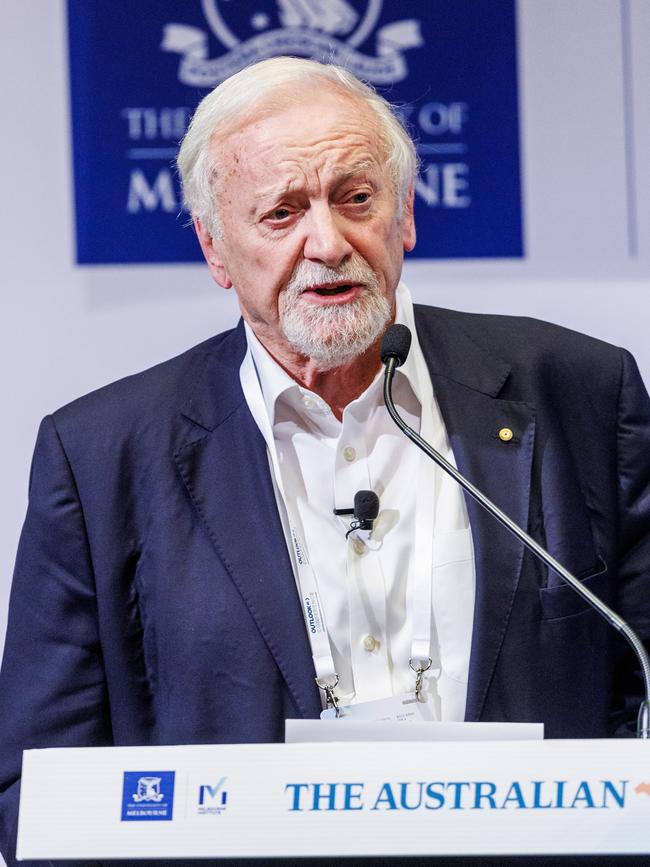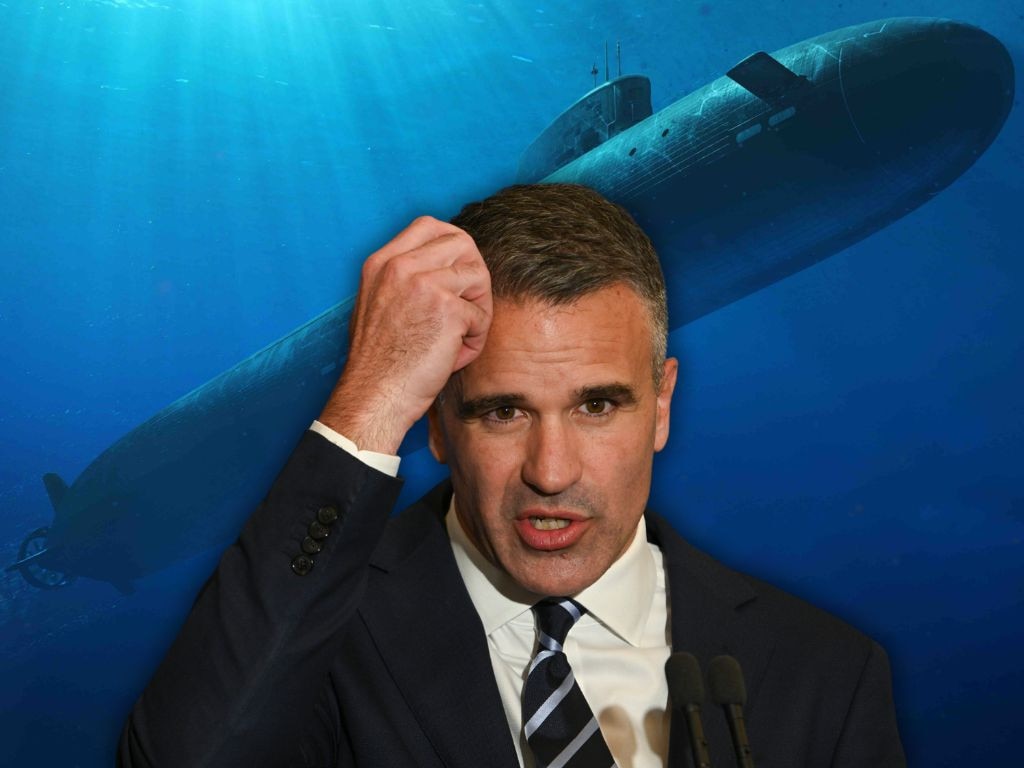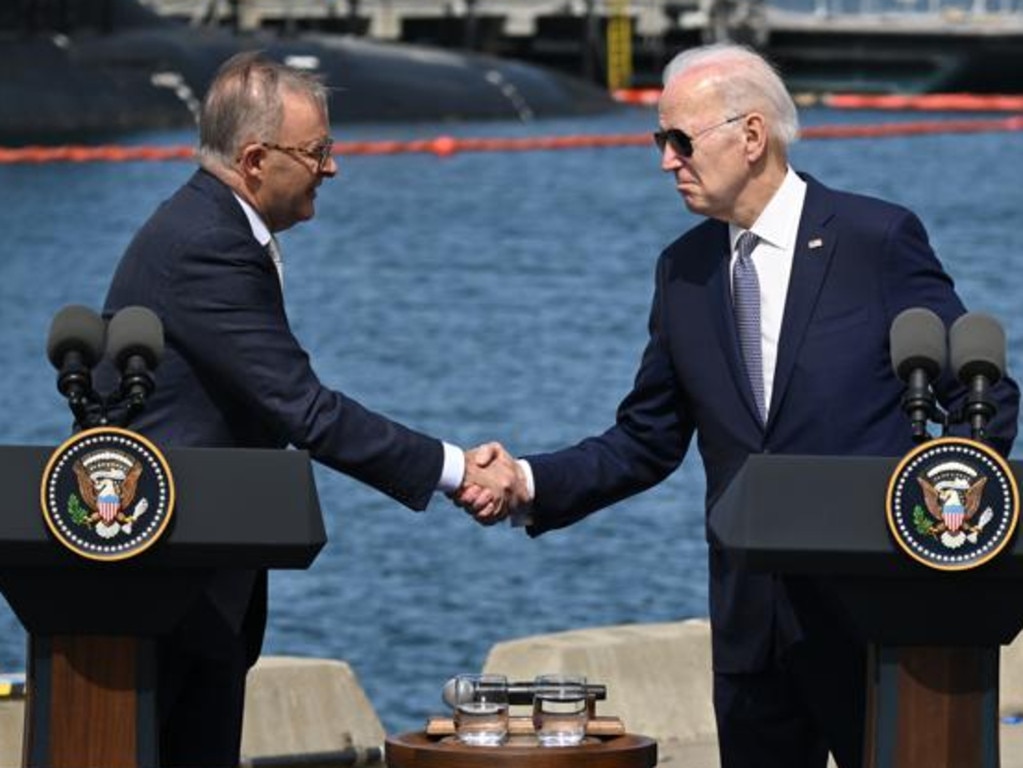AUKUS pact can’t be turned into blank cheque for US

Three years ago, the unveiling of the deal between Australia, the UK and the United States was greeted with a fanfare of trumpets. It was especially welcomed by Tories, for the unworthy reason that it stuffed the French. The deal involves the UK leading design and providing propulsion systems for eight attack submarines, to be built in Australia, of the same class as boats planned for the Royal Navy.
Canberra tore up a contract to buy 12 conventionally powered boats from France. The US is to sell Australia three Virginia-class subs to bridge the 2030s gap until the new builds enter service in the following decade. From 2027, one Royal Navy submarine and some US subs will be based in Australia on a rotational basis.

The technology will, of course, be overwhelmingly American-based and involves Washington admitting the Australians to nuclear secrets currently accessible only by Britain. AUKUS has become a centrepiece of both British and Australian security policy, promising jobs for BAE, Rolls-Royce and Babcock.
Moreover, the submarine purchase is only one element in increasingly ambitious Australian measures to bind the country closer to the US in response to Chinese expansionism in the Pacific archipelagos, especially the neighbouring Solomon Islands. Canberra is spending £7 billion ($13.6bn) creating bases in the northeast for US forces and aircraft. The defence minister Richard Marles said last month: “This is about deterrence.”
Yet a strong body of sceptics, some of them naval officers, are unhappy about the submarine commitment. The costs are stupendous – an estimated £175bn ($350bn) over 30 years – and sure to rise. British designs for the boats, on which construction must start by the end of this decade, are immature. Moreover, both industry and the Royal Navy struggle against serious shortages of nuclear expertise – as do Australia and even the US. But the most important consideration in the minds of troubled Australians is that the AUKUS deal threatens to oblige them to fight if the US so determines. In the words of one strategy analyst: “It seems Australia’s acquisition of [these submarines] is conditional upon an open-ended commitment to go to war against China. This may not be in our national interest.”
Among the most formidable critics is Gareth Evans, Australia’s foreign minister from 1988 to 1996, who said at a Canberra conference last month it was easy to understand why Britain was so keen on AUKUS – because we shall make money out of it. Also, he said, the deal is “perhaps nurturing the delusion of some continuing British influence on world affairs east of Suez”.

Evans identified “the ever-clearer expectation on the US side that ‘integrated deterrence’ means that Australia will have no choice but to join the US in fighting any future war in which it chooses to engage anywhere in the Indo-Pacific, including defence of Taiwan” and said it “defies credibility to believe that in the absence of that last understanding, the [submarine and technology] transfers will ever proceed”.
Having highlighted Australian fears about the AUKUS program, it deserves emphasis that the critics are unlikely to prevail. The deal will survive – for now, at least – because so many big players are committed to it. Nick Childs of the International Institute for Strategic Studies (IISS) has written: “AUKUS has long been recognised as a high-reward, high-risk enterprise.” The British are the ones least likely to jump ship, almost literally, because of the prizes for our industries. Yet if the program runs into serious troubles, delays and cost overruns, it is easy to envisage the Australians giving up on us and buying more boats from the Americans.
Whatever we think of AUKUS, Britain must make a success of our part of the submarines’ construction because our national credibility is at stake. Yet a British defence insider with whom I discussed this said: “I don’t think our UK submarine sector is remotely capable of delivering what the Australians want on time, on cost or to standard.” We should also consider the grave strategic question of how far allies – Britain, as well as Australia – must feel obliged to defer to US decisions for peace or war. This is especially the case when tensions with China are running high and certain to continue to do so. A real prospect exists of a superpower collision. Yet for us it seems one thing vigorously to resist Chinese bullying, quite another to go to war.
Back in 2002, I was consumed with misgivings about Britain’s possible participation in the invasion of Iraq. Michael Howard, then president of the IISS, said he shared my fears that the Americans had no plausible idea what to do, once their army reached Baghdad. Then he astonished me by saying: “But if the Americans are really determined to do this, we shall have to go in with them.” His view, widely shared within the defence establishment, was that if we declined to commit, the entire Atlantic alliance would be at risk.

I have often since reflected upon his remarks. In 1966, after Harold Wilson rejected President Johnson’s impassioned requests for British military support in Vietnam, the US secretary of state Dean Rusk said bitterly to a British journalist at a Washington party: “When the Russians invade Sussex, don’t expect us to help you.” Yet Britain’s Atlantic relationship survived Wilson’s wise abstention. In the present volatile state of the world, and of US governance, it seems rash for either Australia or Britain to say or sign anything that promises blank-cheque support in an American shootout with China.
Both our nations should sustain the policy of deterrence, which demands rearmament, to which Australia is today committing itself much more convincingly than Britain. But nothing in foreign policy should be unconditional. The Americans, ruthless bargainers, have never made it so, back to the Second World War.
Evans said in his Canberra speech: “It cannot be said too often that [Australia and New Zealand’s defence treaty with the US] does not bind the US to defend us, even in the event of existential attack.” The same must apply the other way around – and one day many lives may depend upon ensuring that it does.
Sir Max Hastings is a journalist and historian. He is a former editor-in-chief of The Daily Telegraph and editor of The Evening Standard. This article was first published in The Times`.







Many people’s eyes glaze on hearing the word “defence”. When “Australia” is added, they skip to the sports pages. However often important people tell us the world is now an exceptionally dangerous place, in the absence of falling bombs it is hard for governments to secure popular support for prophylactic action. Yet Britain should take notice of an increasingly strident debate Down Under, about their own defence